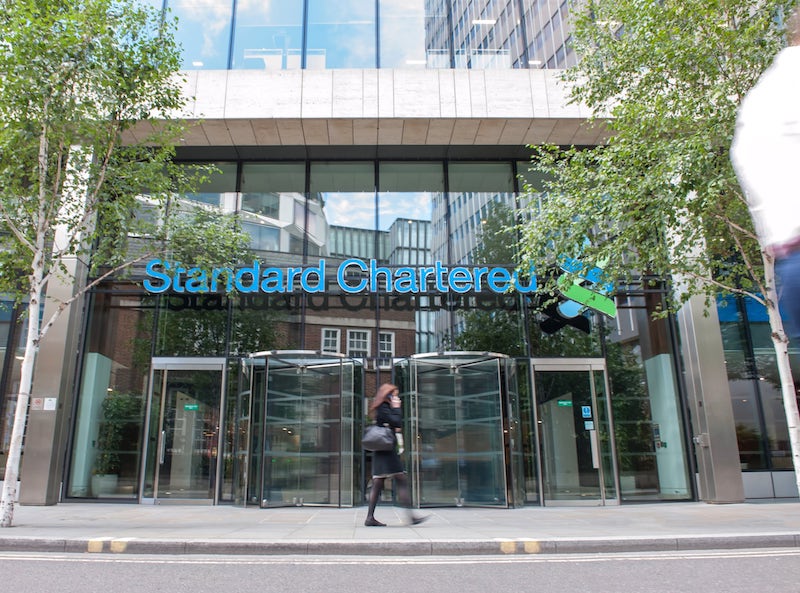Capgemini Wealth Management Top 10 Trends 2023: Direct Indexing, Managed Accounts, Private Markets, Digital Assets, OCIO, Family Offices, ESG Standards, Cybersecurity, M&A, Mass-Affluent & Women Live 5 Years Longer than Men
28th January 2023 | Hong Kong
Capgemini has released a report on Wealth Management in 2023, identifying the top 10 key trends in the Wealth Management industry. Key trends in 2023 include Direct Indexing (Buying direct shares instead of an index), Separately Managed Accounts (SMAs), Private Markets & Alternatives, Digital Assets (beyond cryptocurrencies), OCIO Services (Outsourced Chief Investment Officer), Family Offices, ESG Regulatory Standards (Greenwashing), Cybersecurity, M&A in Wealth Management Industry, Relationship Managers’ expectations, focus on new segments including Mass-Affluent and Women, with women living 5 years longer than men (increased wealth & inheritance). The 2023 Operating Environment – Rising inflation & interest rates, stagflation, disruption due to geopolitical instability, intense competition, cost overruns & capital lock-in, and regulations. On Private Markets & Alternatives – Investors rebalance their portfolios, actively shifting to alternative investments, especially private equity, and pursuing private markets to offset short-term volatility & boost longer-term returns. For Family Offices & UHNWIs – Currently hold around 90% of the $7 trillion in Private Market AUM. Global OCIO industry grew from $1.29 trillion in assets under administration (AUA) in 2016 to $2.46 trillion in 2021, and is expected to grow to $4.15 trillion AUA in 2026. On ESG Regulatory Standards / Corporate Investment Greenwashing, challenges remain to measuring, reducing & disclosing investment portfolio carbon information at scale and in line with global pledges (eg. 2050 Net-Zero target). For Relationship Managers, ESG due diligence is complex because of challenges in measuring the actual impact of ESG-aligned investments. Women live 5 years longer than men, and may own much of baby boomers $30 trillion financial asset pool because they are the leading beneficiaries of current wealth transfers. Of the 2,668 billionaires in 2022, 327 were women. (ESG ~ Environmental, Social & Governance) View key summary below | Read the full report here.
“ Wealth Management Top 10 Trends 2023: Direct Indexing, Managed Accounts, Private Markets, Digital Assets, OCIO, Family Offices, ESG Standards, Cybersecurity, M&A, Mass-Affluent & Women Live 5 Years Longer than Men “
Capgemini Wealth Management Top 10 Trends 2023

Capgemini has released the top 10 trends for Wealth Management in 2023, identifying key trends in the Wealth Management industry.
Key Summary – Top 10 Trends
- 2023 Top 10 Trends: New Portfolio Strategies, Digital Assets, OCIO Services, Family Offices, ESG Standards (Stop Greenwashing), M&A and Consolidation, Women Segment, Mass-Affluent Segment, Cybersecurity, Relationship Managers expectations
- 2023 Operating Environment: Rising inflation & interest rates, stagflation, disruption due to geopolitical instability, intense competition, cost overruns & capital lock-in, regulations
- Direct Indexing – Mass-affluent investors are turning to direct indexing (DI) because it supports tax efficiency, diversification, personalization, and values-based investing (In the past, only the wealthiest investors and advisory firms sought direct indexing due to high costs)
- Separately managed accounts (SMAs) – Attracting Wealth Management firms as big players acquire firms specializing in direct indexing & bespoke strategies delivered via Separately managed accounts.
- Private Markets & Alternatives – Investors rebalance their portfolios, actively shifting to alternative investments, especially private equity. Pursuing private markets to offset short-term volatility & boost longer-term returns
- Digital assets (beyond cryptocurrencies) – Growing range of digital assets & metaverse influences
- Relationship managers – Must understand digital asset strategies, underlying infrastructure, tax implications, risks, and details about returns to balance client enthusiasm for digital assets while explaining associated risks.
- OCIO services (Outsourced Chief Investment Officer) – Investment complexity is driving decisions to use OCIO services.
- OCIO Trend – Outsourced portfolio management particularly among endowments, foundations, and family offices.
- Family offices – HNWIs prefer family offices because of their one-stop-shop convenience and personalized services
- Family offices become central hubs – wide range of services, managing wealth, preparing the next generation for succession, counselling, legal advice, tax planning, insurance, healthcare, event planning
- Family Office in Hong Kong & Singapore – Tax exemptions & concessions
- Family offices facing regulations – Face strategic re-evaluation as compliance mandates change.
- ESG Regulatory Standards / Corporate Investment Greenwashing – Challenges to measuring, reducing & disclosing investment portfolio carbon information at scale and in line with global pledges (eg. 2050 Net-Zero target)
- ESG for Relationship managers – ESG due diligence is complex because of challenges in measuring the actual impact of ESG-aligned investments.
- M&A in Wealth management industry – Keep firms competitive through expanded AUM, and a strategic footprint into new markets through non-traditional & niche products and services.
- Mass-affluent segment – Rising pool, Demand for complex financial products
- Women segment – Not vastly different from men Firms will need to improve their understanding of women’s life-stage needs at the micro-segment level – entrepreneur, professional, single, married, with children, divorced, widowed, and retired.
- Cybersecurity – Financially motivated cybercriminals often target Wealth Management firms for obvious reasons
- Relationship Managers expectations – Free up time for client-facing activities, Gap between what they need & what firm prioritizes
Key Summary – Selected Data
- Mass-Affluent – Target Separately managed accounts (SMAs) toward mass-affluent retail clients with at least $100,000 to invest.
- Family Offices & UHNWIs – Currently hold around 90% of the more than $7 trillion in Private Market AUM
- OCIO – Global OCIO industry grew from $1.29 trillion in assets under administration (AUA) in 2016 to $2.46 trillion in 2021. Expected to grow to $4.15 trillion AUA in 2026
- ESG Data – 40% of advisors said it was a complex task to obtain accurate ESG impact data
- ESG ROI – 50% of firms lacked clarity regarding sustainable investing ROI (Return on Investment)
- ESG for HNW Investors – 78% of ultra HNWIs and 81% of HNWIs younger than 40 are likely to request ESG scores from their Wealth Management firm
- ESG Social Impact – 64% of HNWIs ask for an ESG score to know more about a fund’s societal impact and performance.
- HNW Women Survey – Demand value-added services around retirement (75%), inheritance planning (75%), legal support (71%), and tax consultation (76%)
- Women Billionaires – Of 2,668 billionaires in 2022, 327 were women
- Women live 5 years longer than men – Women may own much of baby boomers $30 trillion financial asset pool because they are the leading beneficiaries of current wealth transfers, and living an average of 5 years longer than men
- Cybersecurity Breach – Can take up to 2 years to fully recover following a data breach
- AUM – Wealth management firms emerged from the pandemic relatively intact. Aggressively returned to serving existing clients & strategizing to broaden their client base. AUM increased due to client cash flows accumulated during COVID-19 downtime
2023 Wealth Management Top 10 Trends:
- Investors seek new portfolio strategies (eg. direct indexing, private market, private equity)
- Investor appetite for digital assets (beyond cryptocurrencies)
- Demand for OCIO services (Outsourced Chief Investment Officer)
- Family offices – bespoke services & regulatory dynamics
- ESG regulatory standards to stop corporate investment greenwashing
- M&A – Wealth management industry consolidation to achieve scale
- Refocus on mass-affluent segment
- Women increasingly control more wealth (trust & wallet share, live 5 years longer than man)
- Cybersecurity for future readiness
- Digitalized core to bridge gap – Relationship Managers expectations vs Wealth Management firms automation capabilities
2023 Operating Environment
- Rising inflation and interest rates, coupled with stagflation trends
- Operational disruption due to geopolitical instability
- Intense competition and increased focus on customer centricity due to the entry of new-age players
- Operational cost overruns & high capital lock-in Dynamic regulatory activity.
2022 Top Trends:
- Wealth Transfer
- Internal Consolidation & Strategic Partnership
- Wealth Management Ecosystem Collaboration
- Family Offices Resurgence
- Digital Asset Investment Strategy
- Cybersecurity
- Digital Transformation
- Hybrid Advice
- Measuring ESG Impact
- Behavioural Analytics
2023 Wealth Management Top 10 Trends:
1) Investors seek new portfolio strategies (eg. direct indexing, private market, private equity)
Direct Indexing
- Mass-affluent investors are turning to direct indexing (DI) because it supports tax efficiency, diversification, personalization, and values-based investing.
- Direct indexing – buys the underlying shares of an index, instead of buying via a mutual fund or index exchange-traded fund.
- Advantage of direct indexing is tax-loss harvesting, which enables investors to offset profits with losses when the stock market drop.
- In the past, only the wealthiest investors and advisory firms sought direct indexing due to high costs
- Democratization of assets and sophisticated portfolio management techniques have levelled the playing field
- Large asset management firms seek to ramp up their index advisory tools through acquisition & partnerships.
- United States – Separately managed accounts (SMAs) are attracting Wealth Management firms as big players acquire firms specializing in direct indexing & bespoke strategies delivered via Separately managed accounts.
- Target Separately managed accounts (SMAs) toward mass-affluent retail clients with at least $100,000 to invest.
- Separately managed accounts (SMAs) offer direct ownership of securities & tax advantages over mutual funds.
Private Markets, Alternatives
- Family offices & UHNWIs currently hold around 90% of the more than $7 trillion in Private Market AUM
- HNWIs & UHNWIs seek to rebalance their portfolios, actively shifting to alternative investments, especially private equity.
- Investors are pursuing private markets to offset short-term volatility & boost longer-term returns
- More Wealth Management firms to prioritize private markets to give HNWIs higher returns and alternative asset diversification advantages
- Technology & education will play a critical role in helping relationship managers respond to investor demands to incorporate alternative investments in diversified portfolios
2) Investor appetite for digital assets (beyond cryptocurrencies)
- Growing range of digital assets & metaverse influences
- Wealth Management firms to explore investment options beyond cryptocurrency
- Relationship managers must understand digital asset strategies, underlying infrastructure, tax implications, risks, and details about returns to balance client enthusiasm for digital assets while explaining associated risks.
- Wealth Management firms will continue to educate relationship managers and clients about digital assets and ecosystems in 2023 to meet the needs of HNWIs curious about alternative investments.
- Overcome digital delivery obstacles by providing their advisors with productivity-enhancing resources and equipping them to handle queries about digital assets.
3) Demand for OCIO services (Outsourced Chief Investment Officer)
- Why OCIO – Investment complexity is driving decisions to use OCIO services.
- OCIO Benefits – Eliminate need to hire & retain internal investment management staff by providing up-to-date systems for policy design, risk management, back-office operations, and performance measurement.
- Portfolio management efficiencies – OCIOs can reduce operational costs by bargaining for competitive manager fees, eliminating fund-of-fund fees, and negotiating third-party provider agreements.
- OCIOs may combine asset classes to accommodate clients’ appetite for risk (cash, real estate, bonds, digital assets, alternative investments, stocks)
- Seasoned OCIO can make strategic asset allocation changes during market disruptions (e.g. COVID-19 pandemic in 2020)
- Major firms such as State Street, BlackRock, and Vanguard have established OCIO business lines
- Global OCIO industry grew from $1.29 trillion in assets under administration (AUA) in 2016 to $2.46 trillion in 2021. Expected to grow to $4.15 trillion AUA in 2026
- Significant trend – Outsourced portfolio management particularly among endowments, foundations, and family offices.
Why OCIO
- Great Resignation – Key investment staff and board committee members have either left or retired. Wealth management firms find it increasingly more viable to shift asset management to OCIOs
- Volatile Investment Environment – Traditional firms are not properly structured to effectively navigate a volatile, complex, fast-moving investing environment. OCIOs are well-equipped to tackle these situations.
- Complex Asset Class Expertise – Bespoke services to suit each investor type. Expertise in complex products digital assets, PE, infrastructure, alternative assets, etc.
- Cost Structure & Resources – OCIOs charge a fixed monthly rate/fee. Firms can offset costs associated with full-time employees and focus on reducing downtime & driving productivity.
- Agile Governance Advisory – Holistic approach to advising clients on articulating risk and return targets. Effective risk management. ESG implementation & measurement.
- Increasing Demand from Corporates, Non-profits & Pension Funds – Traditional firms are well poised to take advantage because they have long-standing relationships with these entities
4) Family offices – bespoke services & regulatory dynamics
- HNWIs prefer family offices because of their one-stop-shop convenience and personalized services
- Family offices become central hubs – wide range of services, managing wealth, preparing the next generation for succession, counselling, legal advice, tax planning, insurance, healthcare, event planning
- Family offices win customer trust and confidence through services that do not include product sales but instead feature the coordination, advice, monitoring, analysis, and assessment of clients’ investment choices.
- Attract new business with a long-term wealth creation approach and customized solutions built through a deep understanding of each client’s vision
- Enhance the mission-driven image of the wealth management industry by co-creating innovative products and services featuring verifiable and measurable impact
- Family offices can lead the industry by educating and expanding the WM ecosystem to generate positive, measurable social and environmental impact, and financial return
Regulatory
- Family offices will likely face strategic re-evaluation as compliance mandates change.
- For example, challenging new regulations are going into effect – The US Corporate Transparency Act, which requires all entities formed in or registered to do business in the United States to report beneficial ownership information to the Financial Crimes Enforcement Network.
- Co-Investments – Family offices may benefit from new regulations that can open business avenues that enable co-investments with other families in the network.
- Europe – Markets in Financial Instruments (MiFID II) requirement obliges banks to provide access to their dynamic data previously protected in standardized reports. Family offices cam make better-informed investment decisions by retrieving and utilizing the data and other information sources.
- Hong Kong & Singapore – Tax exemptions & concessions
Family Office Services
- Family offices – multigenerational engagement
- Value-added services / one-stop shop
- Emotion-based investment strategy
- Regulatory support / push
5) ESG Regulatory Standards / Corporate Investment Greenwashing
- Challenges to measuring, reducing & disclosing investment portfolio carbon information at scale and in line with global pledges (eg. 2050 Net-Zero target)
- Relationship managers – ESG due diligence is complex because of challenges in measuring the actual impact of ESG-aligned investments.
- Investors – Introduction & enforcement of global ESG impact disclosure regulations are crucial to helping investors evaluate ESG impact accurately.
- Wealth management firms – Ccontinue seeking internationally recognized metrics to ensure fair & accurate sustainable investment comparisons
Current ESG Regulatory Standards
- The trend has been for governments & regional authorities to share standards for use within their geographies.
- Baselines Standards – Global Reporting Initiative (GRI), IFRS Foundation Framework, or the Task Force on Climate-related Financial Disclosures (TFCFD)
- Regulators to expand metrics in 2023 & beyond
- Europe – The Sustainable Finance Disclosure (SFDR) & Taxonomy Regulation (SFTR) offer European Union investment managers new rules about disclosing ESG risks in their products & incorporating risk assessment within investment processes.
- United States – Securities & Exchange Commission (SEC) assesses climate and material ESG issues along two dimensions 1) How companies report on ESG issues 2) How they address potential greenwashing by investment firms promoting ESG products
- Hong Kong – Securities & Futures Commission (SFC) implemented new guidelines in 2022 on enhanced disclosures required for authorized funds citing ESG factors as their investment focus
ESG Survey
- 40% of advisors said it was a complex task to obtain accurate ESG impact data
- 50% of firms lacked clarity regarding sustainable investing ROI (Return on Investment)
- 78% of ultra HNWIs and 81% of HNWIs younger than 40 are likely to request ESG scores from their Wealth Management firm
- 64% of HNWIs ask for an ESG score to know more about a fund’s societal impact and performance.
6) M&A – Wealth management industry consolidation to achieve scale
- Mergers & Acquisitions – Keep firms competitive through expanded AUM, and a strategic footprint into new markets through non-traditional & niche products and services.
- 2022 – Wealth management firms joined forces to pool resources and future-proof their businesses.
- New Markets & Client Segments – Firms can cater to new markets and client segments with a broad range of products and services to suit diverse HNWI investment appetites
- Consolidation Trend – Likely to continue, driven by interest in achieving scale, operational efficiencies, diversification through new capabilities.
- Internal Restructuring – Expect to see a re-organization of business lines across Wealth Management firms
- Partnerships – Become more critical, with the emergence of WealthTech players that serve new and end-to-end wealth management markets
- Organic growth – Enhancing the advisor workforce. And building a better customer experience through a revamped front office
Recent Trends
- Wealth management firms emerged from the pandemic relatively intact
- Aggressively returned to serving existing clients & strategizing to broaden their client base
- AUM – Increased due to client cash flows accumulated during COVID-19 downtime
- Fee pressures mounting, with more firms reorganizing business lines.
- High demand – Digital capabilities (Robo-advisory), Superior client experiences, Diversified portfolios (ESG products, direct indexing, digital assets, alternative investments).
- Priority – Attracting millennials, female investors, and mass affluent
Consolidation can deliver scale, investment capital, and operational and marketing benefits for sweeping technology improvements.
M&A Advantage
- Revenue-based synergies
- Economies of scale
- Improved cost efficiencies
- Increased market share
Wealth Management M&A Strategic Shift
- Geography and capabilities expansion (Products, Services, Technology, Talent)
- New markets penetration
New products and services delivery - Beneficial cultural shift
7) Refocus on mass-affluent segment
- Mass-affluent investors – Rising pool, Expects more from Wealth Management firms
- FinTechs & Robo-advisory services – Will cost-effectively fill the void if Wealth Management firms do not deliver
Demand for complex financial products – especially among mass-affluent investors expected to branch out from exchange-traded and mutual fund
Alternatives – Mass-affluent investors may explore alternatives such as structured products, digital assets, art, non-bankable assets, and other traditional HNWI assets - Relationship managers are turning to FinTech solutions and artificial intelligence to tap into the mass-affluent demographic (eg. youthful investors comfortable with online investing).
Solutions – Solutions that consider the rising cost of living, their growing interest in sustainability, retirement requirements. - Addition Solutions – Assistance in accumulating & safeguarding their wealth, cost-effective financial counselling & advice
- Capture leads via Online channels – Firms realize they need new capabilities to capture leads through alternate data sources such as online channels
- Aggressive targeting – Anticipate more aggressive targeting of the mass-affluent segment in 2023
- Wealth management firms with efficient customer engagement models and hybrid capabilities can cost-effectively cater to the mass-affluent segment
- Positioned for Success – Incumbent wealth management firms, financial institutions, and affordably-priced retail brokers with a broad spectrum of solutions and hyper-personalized digital engagement are well-positioned for success
8) Women increasingly control more wealth (trust & wallet share)
- Like other investors, women seek healthy returns and purpose-driven investments
- Women Needs – Not vastly different from men. Wealth Management firms will have to adopt the right communication approach to build long-term relationships
- Women Goals – Connection, meaning, a legacy for the next generation, and making a social and environmental difference.
- Wealth Management firms are not connecting because they don’t have a segment-specific marketing strategy or offerings suited to women-specific needs.
Selecting Primary Wealth Manager – Seek quality service, fees, product transparency, and data privacy and security
HNW Women Survey – Demand value-added services around retirement (75%), inheritance planning (75%), legal support (71%), and tax consultation (76%)
Micro-segment level – Firms will need to improve their understanding of women’s life-stage needs at the micro-segment level – entrepreneur, professional, single, married, with children, divorced, widowed, and retired. - Growing Women Wealth – More women join and grow in the corporate world, start and grow successful companies, advance their careers, or inherit more wealth
Women Billionaires – Of 2,668 billionaires in 2022, 327 were women - Live 5 years longer than men – Women may own much of baby boomers $30 trillion financial asset pool because they are the leading beneficiaries of current wealth transfers, and living an average of 5 years longer than men
9) Cybersecurity for future readiness
- Financially motivated cybercriminals often target Wealth Management firms for obvious reasons
- Like banks, Wealth Management firms handle lucrative financial data, but have limited security, smaller budgets, & fewer employees to protect their infrastructure.
- Commercial impact on a business following a cyberattack is financially and operationally crippling
- Many financial institutions underestimated the potential for reputational damage from cyberattacks
- Can take up to 2 years to fully recover following a data breach
Security breach can result in fines of millions or even billions of dollars, not to mention reputational damage because of public distrust - Growth of artificial intelligence, machine learning, and the internet of things (IoT), together with 5G deployment, complicates firms’ IT infrastructure
- Digital investment world, ransomware attacks target private equity, venture capital, & retail fund managers
- Expect Wealth Management firms to enhance security capabilities and educate clients and staff in 2023 to optimize cyber defense mechanisms & stave off digital infrastructure attacks
Increased use of technology in recent years
- Wealth Management firms accelerated the deployment of new and advanced applications, adopting emerging technologies such as cloud computing, artificial intelligence, and big data analytics through digital platforms.
- Most wealth management players use cloud-based software to boost information processing & financial analytics capabilities.
- COVID-19 accelerated the industry’s IT infrastructure shift
- Digital transformation & a remote workforce made Wealth Management firms more vulnerable to cybercrime.
- Most firms depend on 3rd parties to perform digital transactions, which can cause a weak cybersecurity link.
10) Digitalized core to bridge gap – Relationship Managers expectations vs Wealth Management firms automation capabilities
- Client engagement & satisfaction improve when relationship managers efficiently manage their time
- Free up time for client-facing activities – Eliminate time-consuming tasks, leverage advanced technology, automate when possible
Top wealth management firms are investing in automation and digitalization and embarking on an intelligent, tech-based advisory journey. - A strong technology core (leveraging data, AI/machine learning, cloud, digitalization) is the foundation of a scalable customer-centric engagement model
Firms will likely continue the trend of personalized CX (Customer Experience) through relationship manager matchups and self-service touch-points based on a client’s unique needs & preferences - Expect more Wealth Management firms to enhance relationship manager capabilities through actionable data analysis, flexible technology, streamlined workflow activities, and digital tools.
- Future-focused Wealth Management firms will maintain investments in advanced digital tools for personalization and hybrid advisory offerings
Background (Relationship Managers, Wealth Management)
- Relationship managers (wealth advisors) wear multiple hats. Offers financial guidance, conduct client meetings, acquire & retain clients, perform administrative tasks, professional development.
- Relationship Managers dedicate little time to strategic initiatives.
- Many client-related tasks are back-office in nature. Significant efficiency improvements may be possible by implementing updated technology & process automation.
- Post-COVID-19 environment – Advanced technologies and digitization have accelerated & expanded. Automation & digitalization give many relationship managers a 360-degree view of client profiles, enabling more insightful product suggestions & meaningful client interaction.
- Wealth management ecosystem faces disruption – Regulations & governance complexities, volatile markets, rising cost pressures, evolving investor demographics, preferences & behaviors have made profitability concerns top of mind for many Wealth Management executives.
- Automating & digitalizing high-volume manual processes that reduce costs & errors while freeing relationship managers to work on higher-value tasks is a timely & attractive proposition.
- Many investors leaned on digital channels & niche offerings during & after the pandemic, making them less dependent on relationship managers & more personally active in investing
- Data-enabled workstations are narrowing the consolidated customer view gap
- Relationship managers – Gap between what they need & what firm prioritizes
- Relationship managers want their firms to help them boost customer engagement
About Capgemini
Capgemini is a global leader in partnering with companies to transform and manage their business by harnessing the power of technology. The Group is guided everyday by its purpose of unleashing human energy through technology for an inclusive and sustainable future. It is a responsible and diverse organization of over 350,000 team members in more than 50 countries. With its strong 55-year heritage and deep industry expertise, Capgemini is trusted by its clients to address the entire breadth of
their business needs, from strategy and design to operations, fueled by the fast evolving and innovative world of cloud, data, AI, connectivity, software, digital engineering and platforms. The Group reported in 2021 global revenues of €18 billion.
Sign Up / Register
Caproasia Users
- Manage $20 million to $3 billion of assets
- Invest $3 million to $300 million
- Advise institutions, billionaires, UHNWs & HNWs
Caproasia Platforms | 11,000 Investors & Advisors
- Caproasia.com
- Caproasia Access
- Caproasia Events
- The Financial Centre | Find Services
- Membership
- Family Office Circle
- Professional Investor Circle
- Investor Relations Network
Monthly Roundtable & Networking
Family Office Programs
The 2025 Investment Day
- March - Hong Kong
- March - Singapore
- July - Hong Kong
- July - Singapore
- Sept- Hong Kong
- Sept - Singapore
- Oct- Hong Kong
- Nov - Singapore
- Visit: The Investment Day | Register: Click here
Caproasia Summits
- The Institutional Investor Summit
- The Investment / Alternatives Summit
- The Private Wealth Summit
- The Family Office Summit
- The CEO & Entrepreneur Summit
- The Capital Markets Summit
- The ESG / Sustainable Investment Summit



































